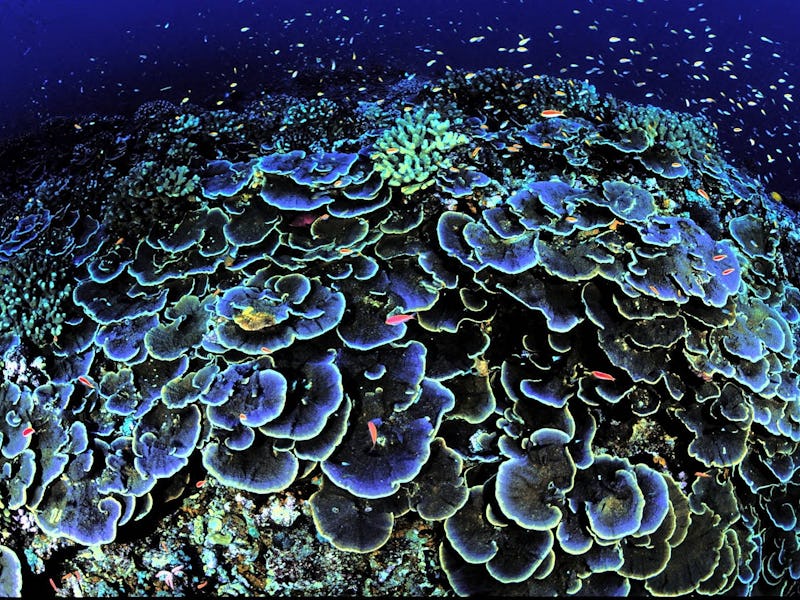Ocean Health XPRIZE Winners Attack Ocean Acidification
Great change requires great data. These engineers can help.

We’re one step closer to addressing ocean acidification. The winners of the $2 million Ocean Health XPRIZE winners have just been announced. As Inverse reported last week, the competition, which challenged international chemistry nerds to help study dropping pH levels by building the world’s best pH sensor, narrowed its initial pool of 77 applicants down to five finalists. The winning team, Sunburst Sensors, is a small company based in landlocked Montana that specializes in making sensors to measure carbon dioxide pressure and pH.
Most of the Ocean Health XPRIZE cash is split into two awards: the Affordability Award, which ranks sensors on their cost efficiency, and the Accuracy Award, which puts data quality above all else. Sunburst Sensors took home both grand prizes — $1.5 million in total — for their winning design, which was based on one of their current models. Their mini sensor, known as SAMI (for submersible autonomous moored instrument), uses a measurement method that’ll be familiar to anyone who’s taken high school chemistry: Drop in indicator dye, wait for the color change, then measure the final color to tell you the water’s pH. It’s simple, elegant, and cheap.
Runners up included the U.K.-based ANB Sensors, whose sensor was based on electrochemical technology, and Team Durafet, a group that since 2008 has been working on optimizing an existing pH sensor for deep-ocean use.
For the competitors, XPRIZE is as much about discovering new technologies as it is about winning. Ultimately, it’s about finding ways to collect data about the changing ocean so policymakers can act. Oceanographers need to obtain evidence to understand the severity of acidifying oceans. Once researchers have this proof, according to Bob Carlson, the leader of Team Durafet, it should be as easy as, “Here’s my data, it’s very convincing, let me show it to you, and you will know how to react to it.” That’s rarely how policy gets made, alas, but given the rate at which acidifying oceans are disrupting food chains and killing coral reefs, any move toward speed is welcome.